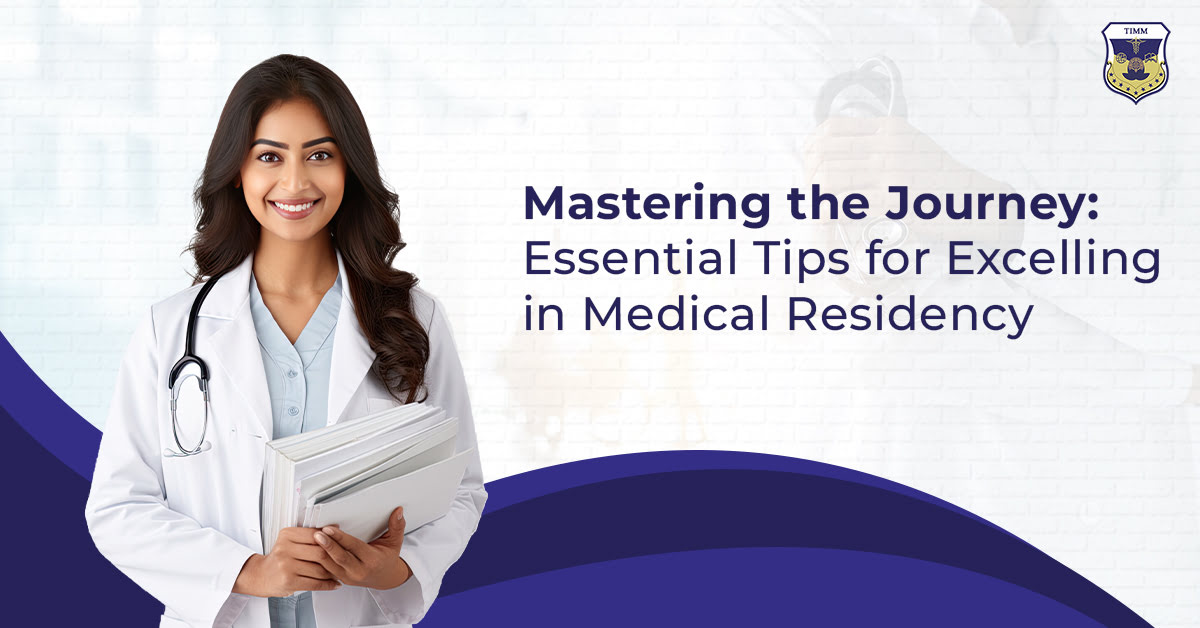|
|
Blog Summary
Introduction
Embarking on a medical residency marks a pivotal phase in a physician’s journey, where theoretical knowledge meets practical application. These programs, integral to medical education, provide hands-on training essential for honing clinical skills and cultivating expertise. Excelling in medical residency isn’t merely a step; it’s the cornerstone of future career success. A well-navigated residency can open doors to lucrative opportunities, specialized fields, and esteemed positions within the medical community.
This article delves into essential tips for maximizing your residency experience. From selecting the right program to excelling during your tenure, we offer tailored guidance to optimize your medical residency journey. Join us as we unravel the keys to mastering your residency and laying a solid foundation for a flourishing medical career.
Medical Residency Landscape
When understanding the medical residency landscape, it’s crucial to grasp what this phase entails for aspiring physicians. Medical residency marks a pivotal period of postgraduate training during which doctors transition from the theoretical realm of medical school to the practical, hands-on experience of clinical practice. This phase allows them to refine their skills, deepen their medical knowledge, and specialize in a particular field of medicine.
Medical residency programs encompass various specialities, from internal medicine and surgery to paediatrics and psychiatry. Each speciality offers unique challenges and opportunities for growth. These programs typically span several years, depending on the speciality and the country’s medical education system.

The structure of residency programs often involves a combination of supervised patient care, didactic lectures, and rotations through different medical departments or specialities. This comprehensive training equips residents with the abilities and knowledge needed to succeed in their chosen field of medicine.
Selecting the Right Residency Program
Speciality preferences: Consider your interests and long-term career goals. Look for programs that offer opportunities in your desired medical speciality, whether internal medicine, surgery, paediatrics, or another field.
Location: Consider where you want to live and work during your residency. Consider factors such as proximity to family and friends, cost of living, climate, and available recreational activities.
Program reputation and accreditation: Research potential residency programs’ reputation and accreditation status. Look for programs that are well-regarded in your chosen speciality and have a history of producing successful graduates.
It’s also essential to conduct thorough research and visit potential residency programs to get a feel for the environment and culture. Pay attention to the facilities, faculty, and resident satisfaction levels. Lastly, trust your instincts and choose a program that feels like the right fit for your personality and career aspirations.
When selecting the right residency program, it’s crucial to consider opportunities for clinical externships within your desired specialty, as they provide invaluable hands-on experience and networking opportunities essential for your long-term career goals.
Navigating the Interview Process
As you prepare for the crucial phase of medical residency interviews, you must equip yourself with the right tools and strategies. Here’s a breakdown of what you need to know:
You are crafting a compelling personal statement: Your statement provides insight into your character, driving forces, and goals. Use this opportunity to showcase your passion for medicine, unique experiences, and reasons for pursuing a specific speciality.
Medical residency interview process: Understanding the interview process is critical to feeling confident and prepared. Typically, interviews consist of one-on-one or panel interviews with faculty members or program directors. Familiarize yourself with the format and structure of the interviews to alleviate any anxiety.
Common interview questions: Anticipate questions related to your background, experiences, career goals, and speciality knowledge. Practice articulating your responses concisely while highlighting relevant achievements and skills.
Tips for during interviews:
- Focus on conveying your genuine interest in the speciality and program.
- Share specific examples that demonstrate your ability to excel in a clinical setting.
- Remember to engage actively, ask thoughtful questions, and express gratitude for the opportunity to interview.
By following these tips and staying true to yourself, you’ll be well-prepared to navigate the medical residency interview process successfully.
Excelling During Your Residency
Doing well in your residency programme is essential to building a solid basis for your future profession in medicine. Here are some key strategies to help you thrive:
Setting Clear Goals: Establishing clear goals and expectations for your medical residency will provide you with direction and motivation throughout the program. Whether mastering specific medical skills or achieving academic milestones, having defined objectives will keep you focused and on track.
Time Management and Work-Life Balance: Balancing the demands of medical residency with personal life can be challenging. Implementing efficient time management techniques, such as prioritizing tasks and allocating specific time for self-care, is essential for preserving a balanced work-life equilibrium and mitigating the risk of burnout.

Building Strong Relationships: Cultivating positive relationships with colleagues, supervisors, and patients is essential for a successful residency. Collaborating effectively with your team and demonstrating empathy towards patients can enhance your learning experience and contribute to a supportive work environment.
Seeking Feedback and Continuous Improvement: Actively seeking feedback from supervisors and peers allows you to identify areas for growth and development. Embrace constructive criticism as an opportunity for learning and improvement, and strive to enhance your clinical skills and knowledge continuously.
Don’t forget to check out our companion blog, “Residency Match Process,” for additional insights and tips to navigate the complexities of matching into the perfect residency program for your career aspirations.
Staying Resilient and Managing Challenges
Staying resilient during medical residency is paramount as it often presents numerous challenges. From long hours to high-pressure situations, residents may face burnout and stress. To overcome these hurdles, it’s crucial to implement effective strategies. Prioritizing self-care, such as adequate sleep and healthy habits, can bolster resilience. Additionally, seeking support from colleagues, mentors, and support services within medical residency programs can provide valuable assistance.
Regular self-assessment and reflection can help identify signs of burnout early on, allowing for timely intervention. Remember, seeking help is a sign of strength, not weakness. By addressing challenges head-on and utilizing available resources, medical residents can navigate their journey more resiliently and successfully.
Conclusion
Embracing the tips and strategies outlined here can significantly enhance your experience during medical residency. By carefully selecting the right program, crafting strong application materials, and confidently navigating the interview process, you can set yourself up for success. Throughout your residency, prioritize self-care, seek support when needed, and remain resilient in facing challenges. Your dedication and perseverance will undoubtedly pay off as you progress in your medical career.
Stay focused on your goals, lean on your support network, and never hesitate to ask for help when necessary. With determination and the right mindset, you have the potential to excel in your medical residency and beyond. Keep applying these strategies, and success will surely follow.


